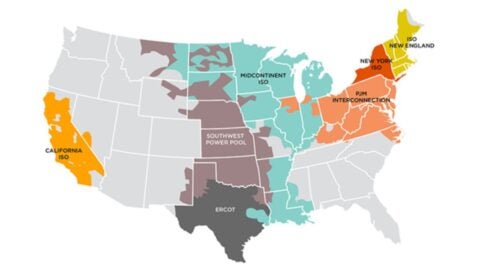California’s Dangerous "Proposition 98"
 Today’s post is by Derek Walker, deputy director of the State Climate Campaign at Environmental Defense Fund.
Today’s post is by Derek Walker, deputy director of the State Climate Campaign at Environmental Defense Fund.
On June 3rd Californians will vote on two competing ballot initiatives that purport to prevent abuse of "eminent domain" – the power of a government to take private property for public use.
But only one of these – Proposition 99, the Homeowners Protection Act – would limit the government’s ability to use eminent domain to take a home to transfer to a private developer.
The other – Proposition 98 – is a deceptive scheme financed by wealthy landlords that would make it easier to evict people from their homes to make way for new developments. Plus Proposition 98 is filled with hidden provisions that would seriously harm the environment.
- A "regulatory takings" provision in Proposition 98 would grant property owners the right to sue to invalidate or receive compensation for government regulations that impose a cost to the owner, even if the regulations are designed to protect public health or the environment. This provision would severely hamper the ability of state and local government to pass and enforce environmental and climate regulations.
- Another provision in Proposition 98 would prohibit regulations affecting real property that "transfer an economic benefit to one or more private persons at the expense of the property owner." Nearly all environmental and public health regulations involve some applicable transfer of economic benefit, and so would be prohibited. Some examples:
- Under a cap and trade system, an entity subject to limits on greenhouse gas emissions could likely claim that economic benefit is being transferred to "one or more private persons" (such as a facility with lower emissions, or a manufacturer of pollution control equipment) at the expense of the property owner.
- Local government regulations to promote walkable, high-density communities could be interpreted as benefitting the businesses and commercial property owners located in those areas at the expense of developers seeking to build elsewhere.
- Regulations that restrict development in wetlands or coastal zones, or impose limits on waste discharge to protect water quality, could likely be interpreted as transferring economic benefit to another party at the expense of the property owner.
At best, Proposition 98 would create an atmosphere of dangerous uncertainty for laws and regulations designed to protect public health and the environment. At worst, it could produce a massive scaling back of existing laws and regulations, while making it virtually impossible to move forward on environmental goals.
Proposition 99, in contrast, would achieve important eminent domain protections without threatening California’s environmental and health initiatives.
A broad coalition – Governor Arnold Schwarzenegger, Former Governor Pete Wilson, AARP, League of Women Voters of California, California Professional Firefighters, California Teachers Association, National Wildlife Federation, and hundreds of other organizations that don’t normally agree on the issues – all oppose Proposition 98.
You can find more information on Prop 98 and Prop 99 on the Web.













One Comment
Derek, thanks for the great info. I always find CA props terribly confusing, and I very much appreciate the analysis.